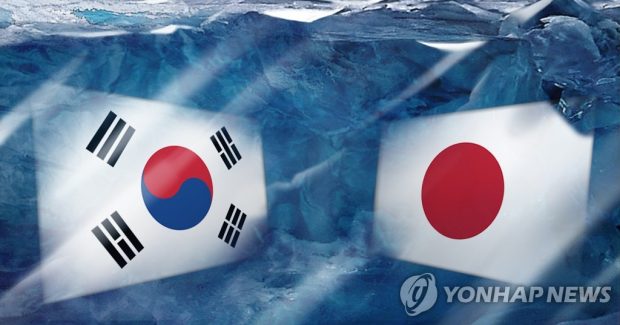Seoul may strip Japan of trusted trade partner status next week

Seoul: South Korea may officially remove Japan from its list of trusted trading partners as early as next week, upping ante in the trade dispute between the two Asian neighbors, the country’s trade ministry said Monday.
The tit-for-tat move follows Japan’s removal of South Korea from its own whitelist of nations given preferential trading terms on Aug. 28.
“We expect the revision to be officially announced next week after going through reviews,” an official from the Ministry of Trade, Industry and Energy said during a briefing. “We are working on finalizing the wording.”
In July, without a prior notice, Japan implemented curbs on exports to South Korea of materials vital for making chips and displays, which are considered the backbone of the technology industry here.
Tokyo claimed the move was inevitable due to South Korea’s lax export controls on sensitive materials, which Japan claims leads to Japanese goods being be diverted for military purposes by third-party countries.
In return, South Korea last month said it will revamp its export lists, increasing them to three groups of trading partners from the current two and placing Tokyo in the newly established bracket.
Tokyo had been on Seoul’s top-tier list of 29 countries subject to preferential export procedures. These countries are members of the world’s top four export control agreements, including the Wassenaar Arrangement.
The newly established bracket, between the two existing groups, is for countries that participate in the four international agreements “but operate an export control system that violates international norms,” according to Seoul’s trade ministry.
Japan, which has not provided any evidence to back up its allegation, removed South Korea from its list of trusted partners late last month, making more than a thousand materials subject to stricter regulations.
Despite its denial, Tokyo’s move is widely seen as a retaliation against a verdict made by a Seoul court last year that ordered Japanese firms to compensate Korean victims for their wartime forced labor.
Japan has been protesting the court’s verdict, claiming that all reparation issues stemming from its 1910-45 colonial rule of Korea were settled under a 1965 accord that normalized bilateral ties.
The Supreme Court, however, acknowledged that individual rights to seek compensation are still valid regardless of the 1965 deal.
YONHAP

























































